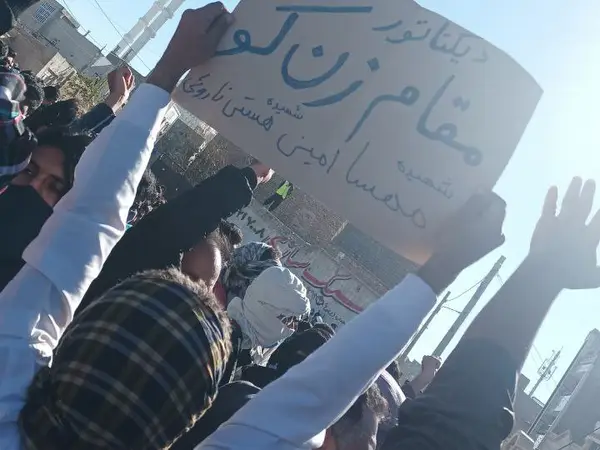Protests have become a regular thing in Iran with students starting the action before noon and people carrying the torch throughout the evening and night hours.
On Thursday, a protester, identified as Aida Rostami, was announced dead by the regime. She was a physician who was arrested because she was treating injured protesters at their homes. Her body showed signs of torture, with one of her eyes removed and half of her face crushed. The regime says she was killed in a car accident.
For many people the sound of morning azan (Adhan), the call for prayers in Islam, is now associated with the execution of their fellow compatriots as the Islamic Republic tends to hang them first thing in the morning.
Iranians have been holding protests for three months now, after the death in custody of Mahsa Amini convulsed the country into its boldest protest movement. Since the beginning in mid-September, people were protesting against the regime, demanding fundamental freedoms. In the following weeks, people also started protesting the bloody crackdown on dissent that has resulted in the deaths of about 500 people, including 60 children. But in recent weeks, the main issue added to the discourse of the protesters -- and their supporters from all over the globe – is the execution of people arrested in the protests.
Every day the regime is killing more protesters on streets or handing them harsh prison sentences, but such brutalities do not intimidate many, as intended.
Another protester, 22-year-old Donya Farhadi, was a university student from Ahvaz, and was arrested during protests several days ago. On Thursday, her body was found in Karoun river, while there are reports that she was tortured to death.
Even when the regime releases a protester and people gather to celebrate, the gathering soon morphs into an antigovernment demonstration, as was the case for Sonia Sharifi, a 16-year-old girl who had been arrested during rallies in Abdanan, located in the south of Ilam province who was released on Thursday.
On Friday, people in the capital Tehran held a gathering at the city’s cemetery for the 40th day after the death of Ali Rouzbahani. His brother said at the gathering that he stood against the regime's bullets because he knew he was supported by all the people. "We are not afraid of your guns and bullets. It doesn't matter whether you kill in Tehran, Kordestan, Khuzestan or Zahedan," he said.
Also on Friday, residents of several cities in the southeastern province of Sistan-Baluchestan poured into streets after prayers, chanting slogans against the regime. Since the Islamic Republic has started executing protesters, a new term has found its way to peoples’ slogans, roughly translated into the “Islamic Republic of execution.” People in the cities of Rask, Zahedan, and several other cities of the province held rallies, calling for an end to death sentences and hangings.
